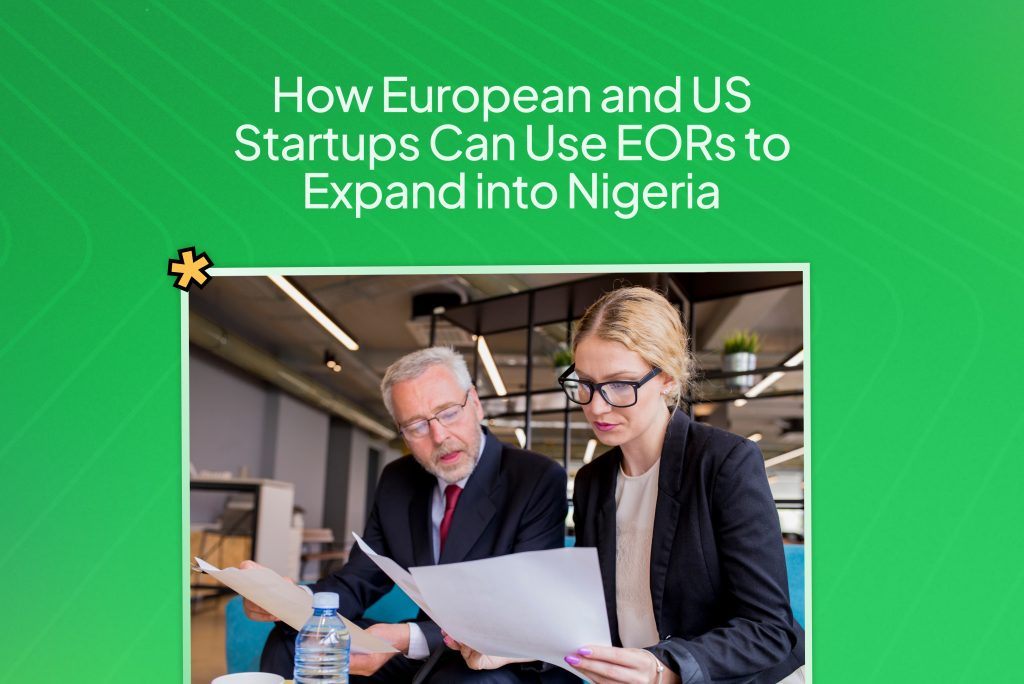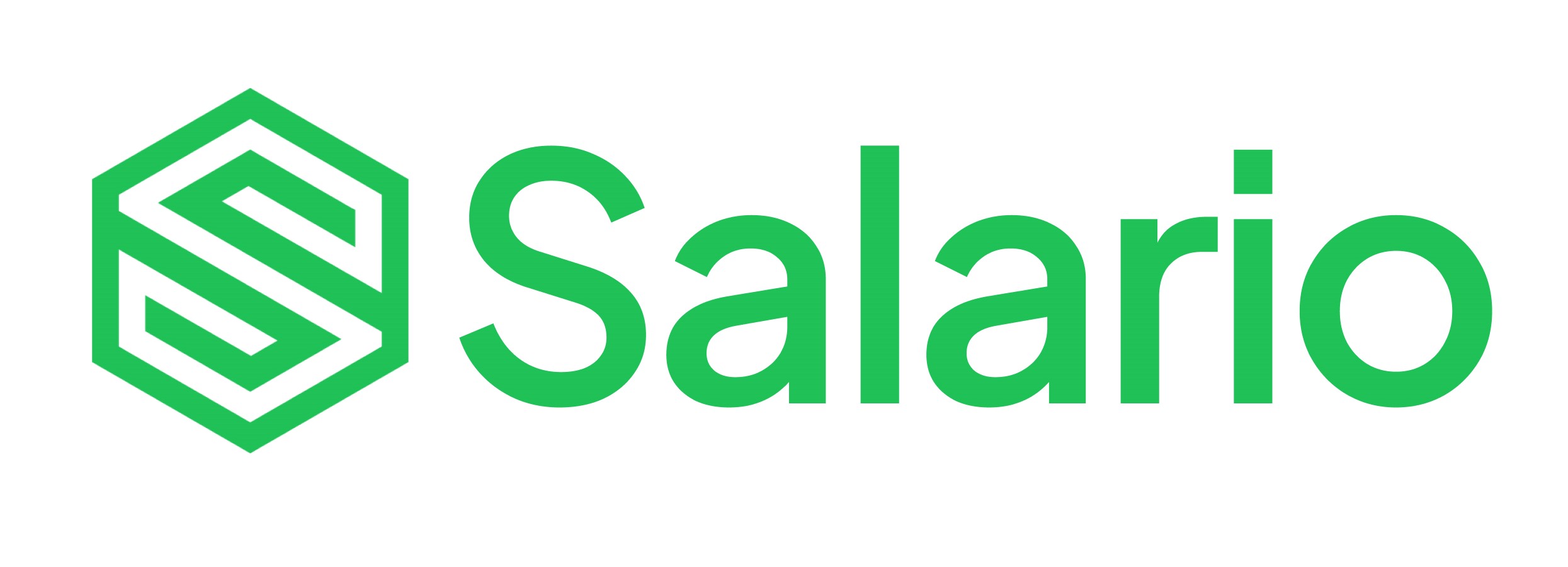
Starting a business involves a couple of key ingredients, without which the business would be heading for disaster from the get-go. You need an idea that solves a problem. This idea does not have to be novel, it just has to be effective. After an idea, you need skilled hands. A group of knowledgeable and smart talents that can bring your idea to life. You also need structure to effectively manage your talents and help them stay aligned with your vision.
While the first ingredient here rests solely on you, European and US startups can use EORs to address the last two ingredients. Essentially, in today’s post, we will be uncovering how European and US startups can use EORs to expand into Nigeria and create value for their business goals and ideas.
Understanding Employer of Record (EOR) Services
As European and US startups look to scale their operations and tap into global talent pools, Employer of Record (EOR) services have become one of the most reliable pathways. Particularly for startups eyeing Nigeria’s thriving tech and service ecosystem, EORs provide a compliant and low-risk way to onboard local talent without needing to establish a legal entity in-country. So, how exactly do these services work, and what should a startup expect from them?
What is an EOR?
An Employer of Record (EOR) is an outsourced organization that becomes the legal employer of your hired staff in a different country, while you retain day-to-day control over their work and responsibilities. This model enables foreign companies to hire employees in Nigeria through an EOR, eliminating the need to register a local subsidiary or navigate complex employment regulations independently.
Let’s say a US-based health tech startup wants to build a customer support team in Lagos. Instead of going through the hassle of entity setup and months of compliance filings, they engage an EOR service. The EOR becomes the official employer for Nigerian labor law purposes, but the startup still directs the team’s tasks, performance goals, and overall direction. This setup makes global hiring agile and compliant.
Key EOR Responsibilities
Engaging an EOR is not just about compliance on paper, it’s about handing off an entire suite of employment obligations while keeping your internal operations lean. Here’s what European and US startups hiring in Nigeria can expect a reputable EOR to manage:
- Payroll Processing and Tax Compliance: The EOR ensures timely salary disbursement, handles PAYE, pension deductions, NHF contributions, and files necessary tax documentation in accordance with Nigerian laws.
- Employment Contracts and Labor Law Adherence: All employment agreements are drafted in alignment with local labor codes, protecting both the employer and the employee from legal disputes.
- Benefits Administration and Statutory Compliance: From annual leave to health insurance, the EOR manages required statutory benefits and ensures your hires receive what they’re entitled to under Nigerian employment law.
- HR Management and Employee Lifecycle Support: EORs often go beyond legal compliance, supporting onboarding, performance tracking, offboarding, and even dispute resolution if necessary.
For EU startups hiring in Africa, and particularly Nigeria, these responsibilities ensure they can focus on their product, growth, and users, while trusting that employment, payroll, and legal compliance are handled locally by experts. This dual advantage of control and compliance is what makes EORs such an attractive expansion tool.
How EORs Solve Nigeria Expansion Challenges
For European and US startups expanding into Nigeria, the potential is huge, but so are the challenges. Between unfamiliar legal frameworks, operational headaches, and financial uncertainty, startups often find themselves overwhelmed before even onboarding their first hire. That’s where Employer of Record (EOR) services come in. EORs offer a structured and compliant way to hire employees in Nigeria while reducing risk, cost, and complexity.
Let’s explore how EORs address the core obstacles international businesses typically face when entering the Nigerian market.
Legal & Compliance Complexities
One of the biggest hurdles for foreign startups is navigating Nigeria’s labor and tax landscape. The country has well-established employment laws, but understanding and applying them as a non-resident company can be daunting. From drafting legally compliant contracts to managing termination procedures, the risk of falling short is real.
A trusted EOR provider takes on this legal responsibility. They stay up to date with changes in Nigerian labor laws, statutory benefits, and tax regulations. This includes managing National Housing Fund (NHF) contributions, employee pension schemes, PAYE deductions, and other compliance obligations. For European and US startups hiring in Nigeria, this means staying protected from fines or legal disputes stemming from misclassification or non-compliance, without having to build an in-house legal team.
By acting as the legal employer, the EOR ensures every hire is onboarded and managed in full compliance with Nigerian labor laws. At the same time, the startup retains full control over day-to-day tasks and team performance.
Operational Hurdles
Setting up a local entity in Nigeria can take months and requires considerable paperwork, financial disclosures, and administrative setup. For early-stage startups, this level of investment may not be viable, especially when the goal is to test a new market or run lean operations.
An EOR solves this by enabling companies to operate locally without the need to establish a legal presence. From sourcing talent to handling onboarding, the EOR takes over the operational legwork. The result? Streamlined hiring, no need to worry about entity registration, and reduced back-office overhead.
For US startups hiring in Nigeria or EU startups hiring in Africa, this removes the single biggest roadblock to market entry, freeing up resources to focus on growth rather than admin.
Financial Benefits
Hiring through an EOR is not only easier, it’s also more affordable in many cases. The traditional route of setting up a local branch or subsidiary involves incurring legal fees, registration costs, ongoing compliance expenses, and establishing a local payroll infrastructure. These costs add up fast.
In contrast, EOR services operate on a predictable monthly fee model. This makes budgeting simpler and allows startups to scale teams up or down without significant financial risk. There are no hidden charges for compliance support or benefits administration, everything is wrapped into a single service fee.
Moreover, faster hiring and operational readiness mean that startups can begin generating value in Nigeria far more quickly than if they went through traditional expansion channels.
In sum, when evaluating how EOR services help businesses go global, the Nigerian context reveals just how transformative these services can be. They reduce risk, save time, and cut down on costs, all while ensuring that your team on the ground is fully compliant and ready to perform.
How European and US Startups Can Use EORs to Expand into Nigeria: Solving Talent Access & Structure
EOR services do more than help you enter a market; they help you build a workforce that works. For European and US startups expanding into Nigeria, two key questions often emerge: “Where do we find the right people?” and “How do we manage them effectively once we do?” Let’s explore how EORs answer both.
Accessing Nigerian Talent
Nigeria is home to a dynamic and growing pool of professionals across tech, finance, marketing, operations, and more. For US and EU startups hiring in Nigeria, an EOR acts as a local hiring gateway. Instead of setting up complex in-house recruitment teams or relying on unreliable freelance platforms, EORs provide direct access to pre-vetted, experienced local talent.
They manage the sourcing, screening, and onboarding, ensuring hires are not only qualified but also legally employed under Nigerian labor standards. This means startups can scale fast and remain compliant while tapping into one of Africa’s most promising labor markets.
Providing Management Structure
Accessing talent is one thing, managing it well is another. This is where many startups stumble, especially in remote or cross-border setups. EORs help fill this gap by providing tested HR frameworks for employee engagement, payroll, performance reviews, leave management, and more.
At Salario, we go a step further by offering localized performance management tools and remote HR support to help startups ensure their Nigerian teams remain aligned with business goals. Whether it’s establishing clear expectations, tracking deliverables, or maintaining cultural cohesion across time zones, we help build the structures that hold your growing team together.
With an EOR like Salario, European and US startups gain not just access to talent, but the support systems that ensure those hires thrive and contribute meaningfully to your global mission.
Key Considerations & Best Practices
While EOR services simplify global hiring, expanding into Nigeria through an Employer of Record is not a one-size-fits-all move. European and US startups should approach this strategy with clear expectations and informed decision-making. Below are essential considerations and practical tips to help you make the most of EOR partnerships in Nigeria.
Understand the Scope of the EOR Agreement
Before signing with any provider, clarify what the EOR service includes. Does it cover payroll only, or will it also handle onboarding, benefits administration, and compliance? A good EOR in Nigeria, like Salario, should provide end-to-end support, not just the basics.
Stay Aligned on Cultural Expectations
Working with Nigerian employees involves understanding local workplace norms and values. While your EOR partner will handle HR frameworks, it’s crucial that your internal leadership also adapts communication and management styles that resonate with local talent.
Ensure Real-Time Compliance Updates
Nigeria’s labor and tax regulations can evolve quickly. Select an EOR that stays ahead of changes and regularly updates its processes to ensure compliance. Salario, for example, continuously aligns with statutory bodies to ensure your payroll and HR remain risk-free.
Plan for Scalability from the Start
Your EOR structure should be flexible enough to accommodate growth. Whether you’re hiring five or fifty employees, ensure your EOR’s systems can scale without lag in service quality or operational hiccups.
Maintain Visibility and Engagement
While your EOR handles administrative details, you still maintain ownership of the relationship with your team. Schedule regular check-ins, provide constructive feedback, and create opportunities for collaboration. The best outcomes come when the startup and EOR work as strategic partners, not just service users.
By keeping these considerations in mind, European and US startups hiring in Nigeria can ensure a smooth and sustainable expansion, one that combines compliance, efficiency, and cultural alignment.
Conclusion
Expanding into Nigeria can open the door to a dynamic talent market and long-term growth opportunities, but only if done with the right structures in place. For European and US startups, using an Employer of Record (EOR) service is one of the most efficient and compliant ways to hire employees in Nigeria and build a high-performing distributed team from day one.
At Salario, we specialize in helping global companies break into the Nigerian market with ease. From payroll and tax compliance to employee onboarding and performance management, our EOR solutions are built for simplicity, scale, and local nuance.
Want to see how it works? Book a demo with Salario today and discover how our systems are tailored to help your team grow in Nigeria, without the administrative weight.
